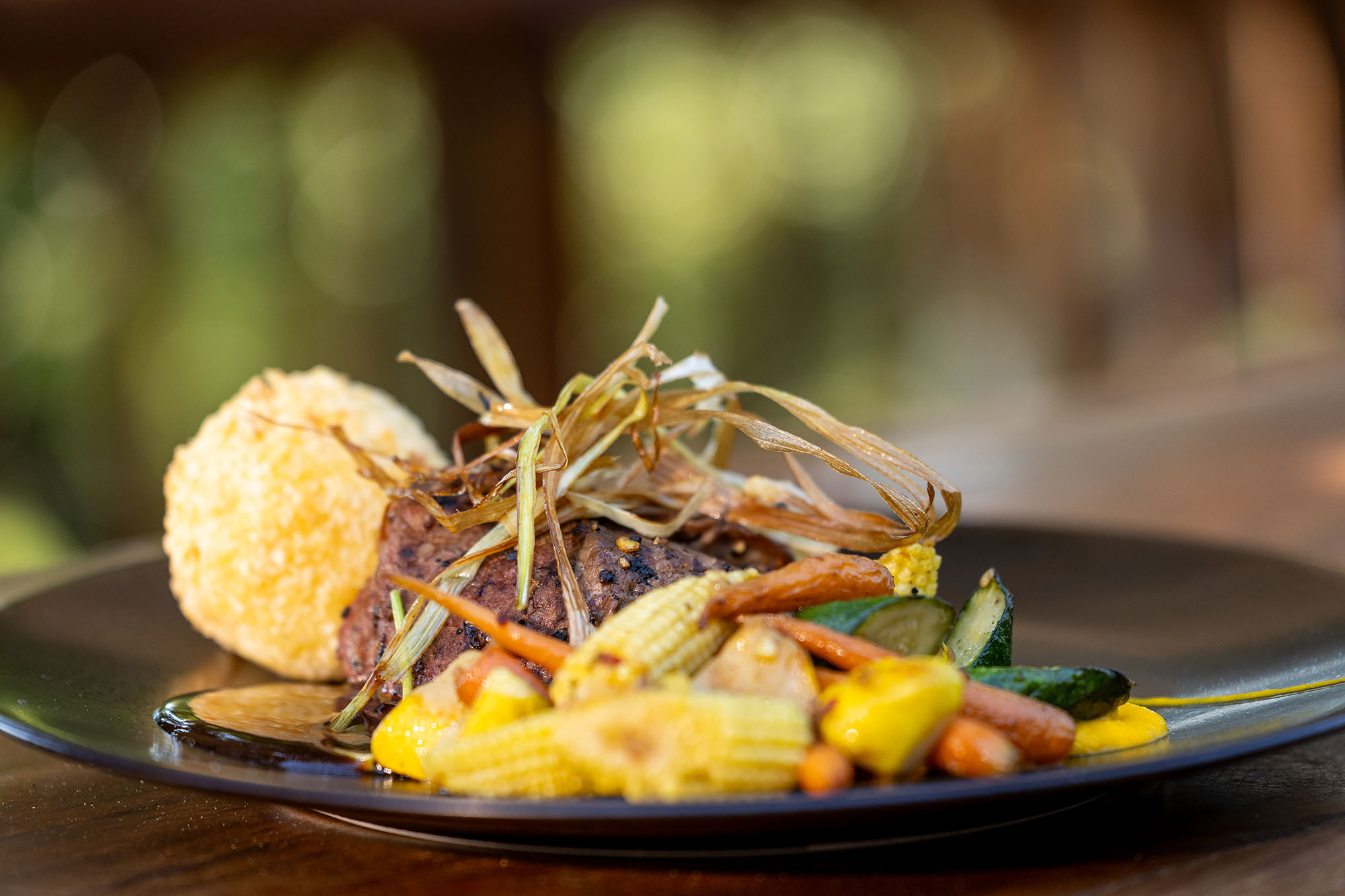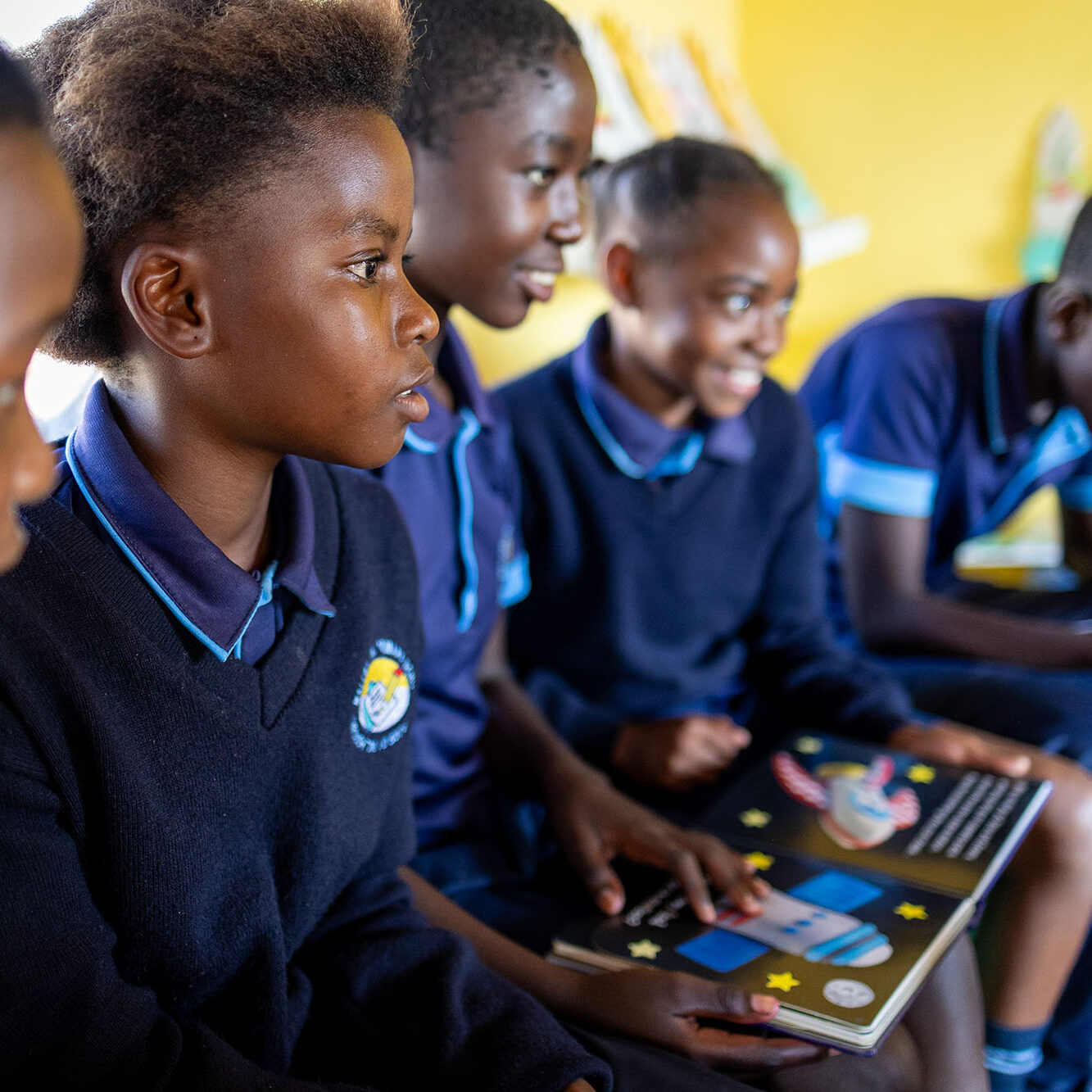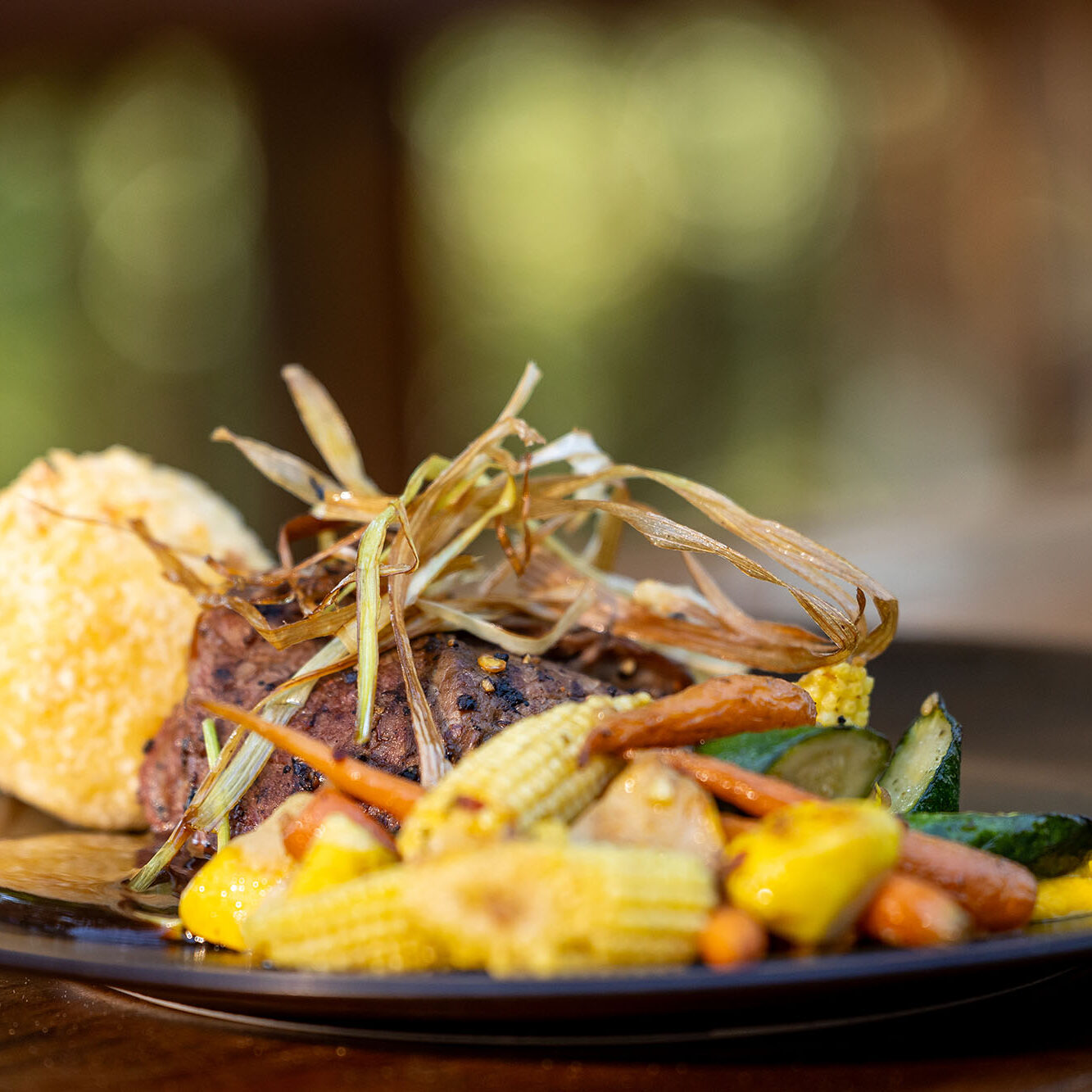Baby Corn and Spinach: A Local Food Revolution

How Baby Corn and Spinach Sparked a Local Food Revolution
From Seed to Supper
It started with a taste test. In Karongwe’s kitchens, chefs placed two plates side by side — one with baby corn and spinach that had travelled nearly 1,000 kilometres to and back from the Johannesburg fruit & veg market, the other picked the day before from a farm just down the road in a local village. The verdict was unanimous: the local produce wasn’t just fresher, it was better in every way.
“You can’t fake the difference,” says Brett Bowes, one of Karongwe’s custodians and Executive Director. “When food is grown here, by people who know this soil and climate, it arrives full of life.”
For years, imported vegetables had been the default. Priced at around R47 per punnet, the well-travelled corn had already racked up a heavy carbon footprint. The local farmer, Thapelo, was selling his produce for R25 per punnet at the Joburg market, losing out on local buyers and paying the cost of distance.
Karongwe changed that. All five lodges switched to buying directly from Thapelo’s farm, spending R30,000 per month on baby corn and spinach alone. His promise: for every R30,000 in monthly orders, he’ll hire an extra local worker. The first new job is already filled.
We’ve identified 28 more products and services we can source this way,” says Brett. “It’s about more than freshness — it’s about shortening supply chains, cutting emissions, and putting money directly into the hands of local farmers and their families.
The benefits ripple outward. Fresher food for guests. Lower transport emissions. Jobs that put breakfast on the table for 3–4 children in every household in the local villages. And all of it sparked by the deceptively simple act of searching for regenerative opportunities and making long-term commitments to local communities.
For Karongwe, the shift is also a reminder that doing the profitable thing and doing the sustainable thing can go hand in hand. By strengthening local supply chains, the lodges not only reduce costs and risks, but also ensure that their own future is rooted in the same soil that sustains the surrounding communities.
It’s conscious capitalism in practice — prosperity shared, purpose preserved.


